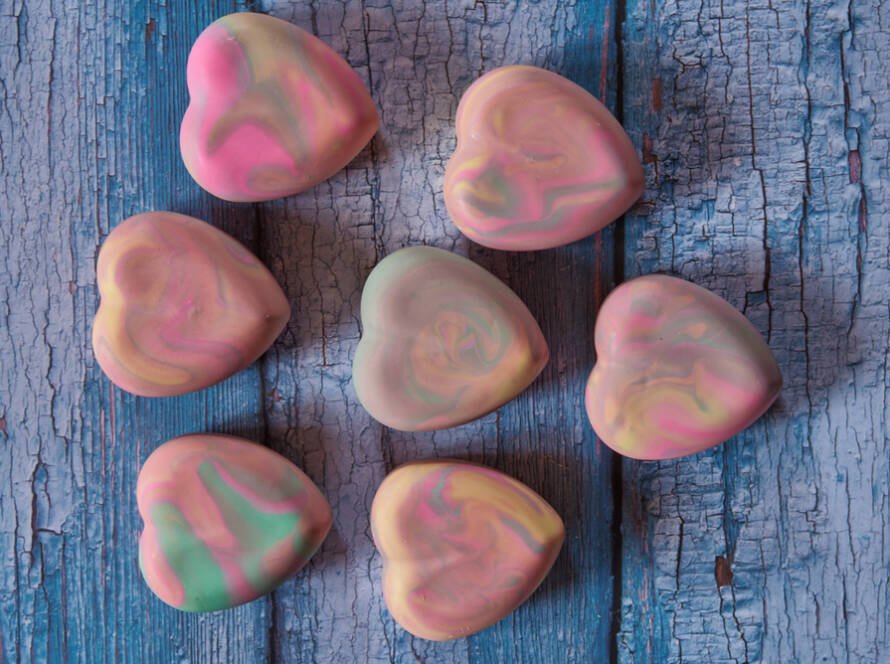Body theology is just one aspect of embodied theology, but it makes the most salient point: that our bodies are not “fallen” or “sinful” or something dirty to be left behind. Instead, body theology states that our bodies are sacred. Depending on your religious or spiritual traditions (or paths), the body could be the manifestation of God’s creation or the universe incarnate trying to understand itself. The name you put on the spirituality matters less than the fact that embodied theology rejects the idea of the physical as sinful and instead invites us to see the wonders of the universe within our own bodies.
Gender doesn’t just intersect with body theology, it is at the heart of body theology. The same holds true for nonbinary or agender identities, because they, too, are a part of the diverse experience of gender or whether one identifies with any at all. This was all brought home to me recently when I listened to a podcast that talked about transcending gender. Aha, I thought, here we can talk about genderqueer and nonbinary identities in relation to this spiritual practice. And yet, the podcast spoke only in dualities, relying on stereotypes of masculine as structured and rigid and feminine as fluid and intuitive. I keep waiting to hear about how they “transcended” gender even as the minutes of the podcast ticked past and they seemed to double down on it.
If we are to understand bodies as sacred, then we must respect all gender/ungender expressions and identity.
Trying to distill gender down to “simple biology” is like trying to count the grains of sand on a beach. You can think you have an answer, but that answer generally isn’t set in stone as the sand washes to and from shore and you can quibble over the definition of beach or even sand. (I’m not a geologist, so this is a reminder that I’m using a metaphor!) Maybe the better metaphor is trying to distill kitten cuteness down to biology. I don’t think that’s possible even if we recognize certain features (big eyes in proportion to face size, for example) that may lend itself to cuteness.
If we are to see that all bodies are the expression of the universe (or the divine if you believe in some type of divinity), then we can imagine that in the plant and animal (and fungi) kingdoms there are vast arrays of gender and for the most part, animals don’t quibble over it. Only humans do. Only humans, and a small subset of those at that, question these things.
If we are to focus on an embodied theology, then we must understand that the body has infinite variations, and yes, gender is among that infinite expression. It isn’t hard coded like 1s and 0s in binary code. There isn’t even a duality. And for many of us, myself included, gender is wrapped up in much more than what the body appears like or developed like. Let’s be honest, too. For many of us medical care is a privilege, it’s a luxury, so even if there were some test that could be done, some definitive way of throwing darts at he binary and making it stick, most of us couldn’t even access it. I’m mean let’s be honest. I live in rural Missouri. A doctor told he wouldn’t treat “women”‘s pain because “Eve at the apple”. And yes, he still has the job, and over ten years ago, the women’s clinic I attended left me in so much pain that basic care was a traumatic experience, and I haven’t been back. And I won’t be back.
Why am I saying this? Because body theology means embracing the entire body, the entire self, the entire being. We cannot be embodied without considering both our inner and outer selves. We cannot be embodied without considering our mind, our heart, and yes, our soul or spirit. Again, choose the word that fits best for you. Our higher self/soul/spirit is just as much a part of us as our fingers and toes and hair. It’s connected to ourselves like our brain, our thoughts, our skin would be. And it takes all of these parts, mental, physical, and emotional, to make up a gender identity, or to completely ignore gender categories all together.
Yes, choosing not to participate in gender, being agender or nonbinary, is a part of that big, beautiful spectrum we celebrate. It’s just as sacred as all other labels or identities we may claim for ourselves. And that choice, that ability to make these decisions. That’s sacred too.
As I write about body theology and what it’s like to live as an embodied BEing, I just want to take a moment and say, your gender identity or lackthereof is sacred, too.
We’re all sacred.


